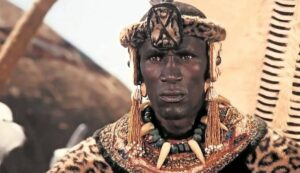A continent with a lengthy and diverse past, Africa. African nations, spanning from the ancient kingdoms of Kush and Meroe to the contemporary countries of Nigeria and South Africa, have exerted a substantial influence on global affairs. We will talking about the Ten most powerful kings in African history.
These individuals governed their respective nations with power and influence that endured throughout their people and region.
This article will examine the ten most mighty African monarchs in recorded history.
The African continent and its rulers Authority Demanded And Respect
Numerous monarchs of the continent were formidable warriors. They commanded large armies and ruled over extensive territories. Furthermore, they possessed the means to construct magnificent palaces and monuments.
By conquest, a number of these monarchs were able to expand their realms. Alternative strategies for preserving power involved the formation of alliances with other formidable dictators.
Irrespective of personal opinion, Africa has played host to a number of the most remarkable leaders throughout history. These individuals significantly influenced the development of their respective nations, leaving a lasting imprint that continues to be commemorated four centuries later.
Sadly, not all of them are as well-known as they ought to be, but this list of the ten most powerful monarchs in African history may help to rectify that.
Listed Below Are The Ten Most Powerful Kings in African History
1. Ramesses II
Ramesses II, who was an Elect of Ra and was also known as Ozymandias, Kepper of Harmony and Balance, Strong in Right, and Ramesses the Great, was the third pharaoh of the 19th Dyasty (1292-1186 BCE).
He is frequently regarded as the preeminent, most mighty, and most renowned pharaoh in ancient history. His name appears inscribed inscribed on ruins across ancient Egypt; he oversaw some of the most magnificent construction projects in the annals of Egyptian history.
In addition, by means of two hundred wives and concubines, he fathered more than one hundred children, which contributed to his status as one of the most potent rulers of his era.
The ‘Younger Memnon’ statue of Ramesses II. Circa 1250 BC, from the Ramesseum in Thebes, Egypt, during the 19th Dynasty. Museum of Britain, London. 3.0 CC BY-SA.
He led his armies to victory in several engagements during his 67-year reign, including the Battle of Kadesh against the Hittites. He contributed to Egypt’s rise to imperial status and defined himself as a formidable warrior.
Although this conflict ultimately resulted in a stalemate, it marked the inaugural documented peace treaty of 1258 BCE.
Additionally, he is frequently linked to the Pharaoh in the Bible; however, no empirical evidence supports this assertion at this time.
Additionally, he oversaw numerous construction endeavors, including the Ramesseum and the temple complex at Karnak, both of which were designed to honor him and his reign.
His grandeur is attested to by the colossal tombs of the Ramesseum at Thebes, the temples of Abu Simbel and Karnak, and hundreds of other monuments and temples. His reign is regarded by numerous historians as the zenith of Egyptian art and culture.
2. Sundiata Keita
Sundiata Keita ruled the ancient Mali Empire from 1235 to 1255 CE as its first monarch. He was the progeny of a noble lineage among the Malinke people and was dubbed the “lion prince.”
Although Sundiata Keita did not have the privilege of being an only child, legends have it that he was a weakened child and thus escaped the slaughter of his siblings at the hands of the Ghanaian rulers. He ultimately ascended to the throne of his kingdom, Kangaba.
Subsequently, when the Ghana Empire endeavored to enforce trade restrictions on the Malinke people, Sundiata rallied numerous West African peoples to rebel against Sumanguru, the king of Ghana at the time.
Sumanguru’s defeat by Keita solidified his position and marked the beginning of the Mali Empire, one of the most prosperous empires in history.
As soon as he ascended to power, he reconstructed his devastated birthplace near the Sankarini River; the resulting capital would serve as an Arab and African trade center.
The Manden Charter, one of the earliest human rights treaties, was also drafted during his reign and orally transmitted among the Malinke people. Additionally, he was the great-uncle of Mansa Musa I, who was frequently regarded as Mali’s foremost ruler.
Listed Below Are The Ten Most Powerful Kings in African History
3. Musa Mansa
Initially, it was not intended that Mansa Musa would succeed him as the monarch of Mali; however, this ultimately transpired. Mansa Musa was born approximately in 1280 CE.
His father, Faga Laye (legitimate son of Abu Bakr), was a direct progeny of Sundiata Keita. Mansa Musa became the first monarch of Mali when he was born as the great-grandson of Sundiata Keta, his grandmother.
From 1312 to 1337 CE, he governed as an exceptionally devout Muslim. His renowned pilgrimage to Mecca in 1324 CE contributed to the dissemination of Islam across Mali and West Africa.
However, historical records indicate that these accomplishments diminish in contrast to his others. His immense fortune stemmed from the abundance of gold and salt mines in Mali. Consequently, he is regarded as one of the most affluent individuals in history.
Throughout his tenure, he successfully ruled Mali and augmented its territory by capturing and reconstructing twenty-four cities, including Timbuktu, a prominent hub of commerce and intellectual activity.
His support for the arts and construction of mosques, schools, and libraries were also noteworthy. Mali rose to prominence as one of the most formidable empires globally during his reign.
4. Ali Sunni Ber
“Ali the Great,” also referred to as Sunni Ali Ber, ruled a small dominion in the upper Niger valley in the vicinity of the capital city of Gao.
During his reign, he was forced to repel advances from the Mali Empire, but as Mali’s influence began to decline, he recognized opportunities for the empire to expand.
Sunni Ali Ber was the first notable ruler of the Songhai Empire. Amid his reign from 1464 to 1492, he augmented the empire’s magnitude and scope.
He established a prosperous and affluent Sudanese trading empire that furnished the future Songhai Empire. Additionally, he successfully captured Timbuktu and Djenne, two prominent metropolises in Mali, thereby establishing dominion over the region’s trade routes.
He oversaw the height of the Songhai Empire, which was one of the most expansive in the annals of African civilization.
Listed Below Are The Ten Most Powerful Kings in African History
5. Amenhotep III
Egyptian pharaoh Amenhotep III, alternatively referred to as “Amenophis III” and Amana-Hatpa, ruled between 1386 BCE and 1353 BCE.
He ruled Egypt as the ninth monarch of the 18th Dynasty and is regarded as one of the most mighty ancient Egyptian kings.
At the age of twelve, he ascended to the throne and wedded Tiye, who later ascended to the status of his equal and oversaw the Empire’s operations while he was engaged in military campaigns or the construction of new structures.
Read More Below!!!
Ten African Music Festivals You Should Attend
Top Ten Musicians Of Ghanaian Descent Who Are American
Amidst an extensive construction campaign, Amenhotep III oversaw the erection of numerous temples and monuments, among which stood out the Colossi of Memnon.
A tranquil foreign policy that he established additionally resulted in diplomatic relations with Mitanni, Assyria, and Babylon.
He also increased commerce with other nations and bolstered Egypt’s military, thereby establishing Egypt as one of the most formidable empires of antiquity.
By enhancing the economy and infrastructure of Egypt, he established himself as one of the most prosperous monarchs in the annals of Egyptian history.
6. Shaka Zulu

Shaka Zulu emerged as a highly influential figure in the annals of African history. Born in 1787 CE, he was the progeny of Senzangakhona, the Zulu principal. Before Shaka became chief in 1816, the Zulus numbered no more than 1,500 individuals. However, that all changed when he assumed leadership.
Shaka, an exceptionally astute military strategist, introduced the assegais, a novel spear consisting of long blades and a short shaft, to his troops. It aided him and his military in swiftly subduing neighboring tribes and assimilating their survivors into their ranks; it was a lethal weapon.
Listed Below Are The Ten Most Powerful Kings in African History
7. Regal Shaka
The Shaka ruled present-day Natal by 1823, and the conquests of the Zulus destabilized the region. Unfortunately, the death of Shaka’s mother, Nandi, in 1827, compromised the Zulu civilization’s prosperity.
The leader subsequently lost his sanity. He went insane with sorrow, ordered the execution of hundreds of Zulus, and banned crop planting and milk consumption for one year. Simultaneously, all found pregnant women and their spouses were executed.
Dingane and Mhlangana, his half-brothers, ultimately put an end to his military sabotage, and Dingane ascended to the throne of the Zulus.
Endubis Endubis ruled in Axum, which is now Ethiopia, in the early third century. He was one of the most tyrannical rulers in the annals of African history.
He elevated Axum to the status of a major political force by conquest-driven territorial expansion. During his reign, he expanded trade with other nations, which contributed significantly to Ethiopia’s prosperity and wealth.
In addition to constructing numerous temples, palaces, and public works, his most notable contribution at the time was the minting of his coinage, which contributed to the development of a robust economy.
8. Menelik II
Born in 1844, Menelik II ruled Ethiopia as monarch between 1889 and 1913, when he passed away. During Menelik’s tenure, Ethiopia maintained its independence due to the alliances he forged.
Moreover, As a result of his military triumphs and the establishment of Ethiopia’s sovereignty, Menelik evolved into a potent international emblem for black people.
Despite the introduction of technological advancements such as telephones, telegraphs, and compulsory education in Ethiopia during Menelik’s reign, certain subjects were subjected to severe mistreatment.
Despite truce negotiations with Italy, Menelik II engaged in hostilities at the Battle of Adwa in 1896. An Italian army of 20,000 soldiers was vanquished by Menelik’s 100,000 Ethiopian forces, notwithstanding the severe disease and famine that afflicted Ethiopia that year.
Nevertheless, his subjects were determined for independence, and they engaged in combat, establishing him as the inaugural African monarch to effectively repel a colonial incursion.
Listed Below Are The Ten Most Powerful Kings in African History
9. Askia The Great
Emperor Askia The Great ruled one of the most expansive empires in African history, the Songhai. As a great military commander, he ruled from 1493 to 1528, conquering numerous neighboring kingdoms and expanding his empire.
His soldiers rebelled, engaged in a violent battle, and crowned Askia king of Syria after the successor of Sunni Ali Ber declined to convert to Islam.
He was a sagacious sovereign who enhanced his empire’s infrastructure and economy. During his tenure, he established Islam as the official state religion and advanced education by constructing mosques and schools across the empire.
He motivated his engineers to construct canals and harbors. Furthermore, by establishing weights and measurements, he promoted scientific inquiry and astronomical study.
Under his leadership, the Songhai Empire flourished and became one of the most formidable empires in Africa.
10. Ezana Axum
Ezana Axum governed until 356 as king of the Kingdom of Aksum in modern-day Ethiopia.
He was the inaugural monarch to formally embrace Christianity and designate it as the state religion. Moreover, he increased trade with other nations and conquered neighboring territories to further the expansion of his dominion.
Therefore, although he did not establish the Ethiopian Empire itself, he did establish the foundation for the present-day religious and cultural milieu.
Similar to his predecessor Endubis, he engaged in the minting of coins and endeavored to promote external trade and prosperity throughout his dominion. In addition, he supervised the development of numerous public works, such as roads and irrigation systems.
The Kingdom of Aksum enjoyed profound prosperity and accomplishments during the tenure of Ezana. The Ge’ez language gained autonomy from the Sabaean during his reign, incorporating vocalized sounds, vowels, and more sophisticated, contemporary terminology.
His memory was firmly established with the advent of Christianity, and subsequent to his demise on the battlefield, his subjects returned him to Tegre, where they erected a monolithic church in his honor.






